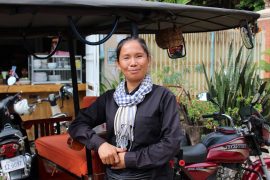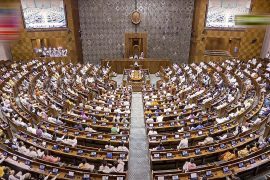South Korea’s first feminist party has vowed to push for equal pay and tougher laws to end widespread voyeurism against women as it gears up to contest an upcoming election.
Due to be launched on March 8 – International Women’s Day – the Women’s Party has signed up over 8,000 members, founded as a growing feminism movement has started to emerge in the socially conservative Asian nation.
It is hoping to win four of 300 parliamentary seats up for grabs in an April 15 poll although political analysts said it would be a challenge for the fledgling party.
“Women’s [issues] have been marginalized by other parties and we want to put them at the forefront,” Kim Eun-ju, a veteran women’s rights activist and one of the party’s founders, told the Thomson Reuters Foundation ahead of the launch.
“We want to highlight the seriousness of discrimination, violence and inequality against women.”
Targeting young women, Kim said the party – which will submit a formal registration a day after its launch – would lobby for stronger laws to curb the epidemic of voyeurism or “spycam porn”, where victims are filmed urinating or having sex.
The epidemic prompted tens of thousands of women to take to the streets in 2018 and laid the foundation for a feminist movement which has since gathered pace in other areas, from abandoning makeup to rejecting marriage.
The new party also aimed to close a gender wage gap, which is the highest among advanced countries at 34.1% in 2018 – more than double the average for the Organization for Economic Co-operation and Development.
After the last 2016 poll, South Korea had 51 women lawmakers which was the country’s highest ever female presentation in parliament at 17%, although this lagged the global average of about 25%.
South Korea’s first female president, Park Geun-hye, took office in 2013 and served until 2017 when she was ousted over a corruption scandal.
“The setting up of the Women’s Party is significant but as a minor party it would be fairly difficult to tap into a broader electorate,” said Chae Jin-won, a professor in politics at the Kyung Hee University in Seoul.
He said it would be “challenging” for the party to win four seats as the electoral system traditionally favors the major parties despite a law reform last year to address the issue.
South Korea was ranked 108 out of 153 countries on the World Economic Forum’s 2020 Global Gender Gap Index.
Source: The Jakarta Post





Comments are closed.